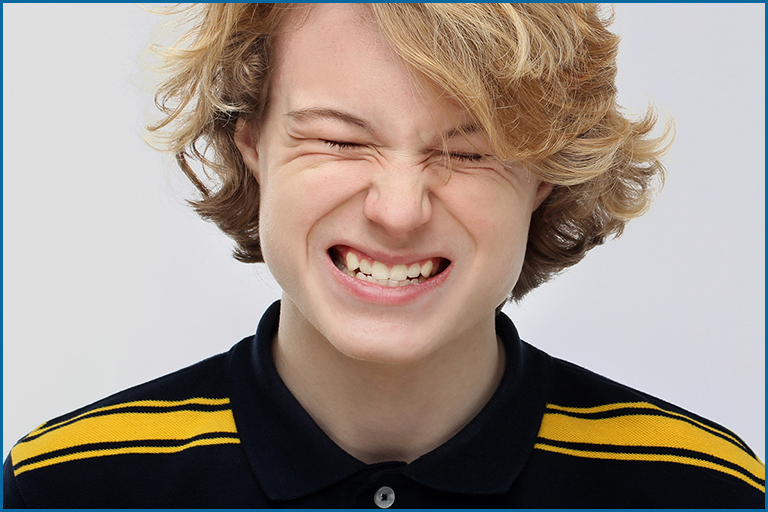
- Home
- About
- Our Team
- Services
- Postoperative Care
- Smile Gallery
- Medical Tourism
- Blog
- Offers
- Contact Us
- Home
- About
- Our Team
- Services
- Postoperative Care
- Smile Gallery
- Medical Tourism
- Blog
- Offers
- Contact Us

Most people clench and grind their teeth now and then. This is called bruxism in medical terms. Teeth grinding is usually associated with a stressful situation or if the person is anxious. When people grind their teeth periodically, there is not much harm to the teeth. However, frequent teeth grinding may lead to many dental problems. Bruxism is of two types: Sleep bruxism (grinding your teeth during sleep) and awake bruxism (grinding your teeth while you are awake).
What are the signs and symptoms of bruxism?
You may have bruxism if you present with the following signs and symptoms of bruxism:

Additionally, people who grind their teeth often while sleeping are more prone to suffer from sleep disorders like snoring and sleep apnea (a condition in which there is an interruption in the person’s breathing).
How can teeth grinding be treated?
Teeth clenching while sleeping cannot be stopped by any treatment. However, there are numerous methods for reducing the episodes and decreasing damage to the teeth. The ideal treatment for sleep bruxism differs from person to person. The dentist must examine the patient and identify the benefits and drawbacks of the particular treatment according to the patient’s particular condition. A few approaches that can be taken to manage teeth grinding are:
Managing stress levels- Extreme stress can lead to teeth grinding. Therefore, it is essential to reduce stress as this might naturally help in limiting bruxism. A technique called “cognitive behavioral therapy for insomnia” is a kind of therapy to help patients have a better sleep pattern. This might relieve stress and anxiety too.

Mouth guards- These are also called night guards and they help in limiting damage to the teeth caused due to teeth grinding. To block the teeth from the damaging effects of grinding, dental splints could be used. They can either enclose small tooth portions or the entire upper or lower arch. A mandibular advancement device (MAD) is used to minimize grinding by maintaining the jaw in a particular position. They can also be used to limit snoring by stabilizing the lower jaw in a forward position.

Taking medications- The majority of medications work by modifying the chemicals present in the brain for limiting muscle activity associated with tooth grinding. Advanced cases of sleep bruxism can be treated with Botox injections. Before initiating the treatment for bruxism, it is essential to consult a doctor for better awareness of the drug’s actions and adverse effects.

Reductive coronoplasty- This is a simple procedure done by a dentist where the occlusal surface is reduced such that the biting surface of the tooth is in line with that of the remaining teeth.
Additive coronoplasty- This is a procedure for restoring the missing portion of teeth.
Relieving existing symptoms- This can help to manage teeth grinding better. Some ways to relieve symptoms of bruxism are:

Tips for coping better with teeth grinding:
Tip Measures that can be taken to prevent or manage teeth grinding are: